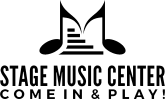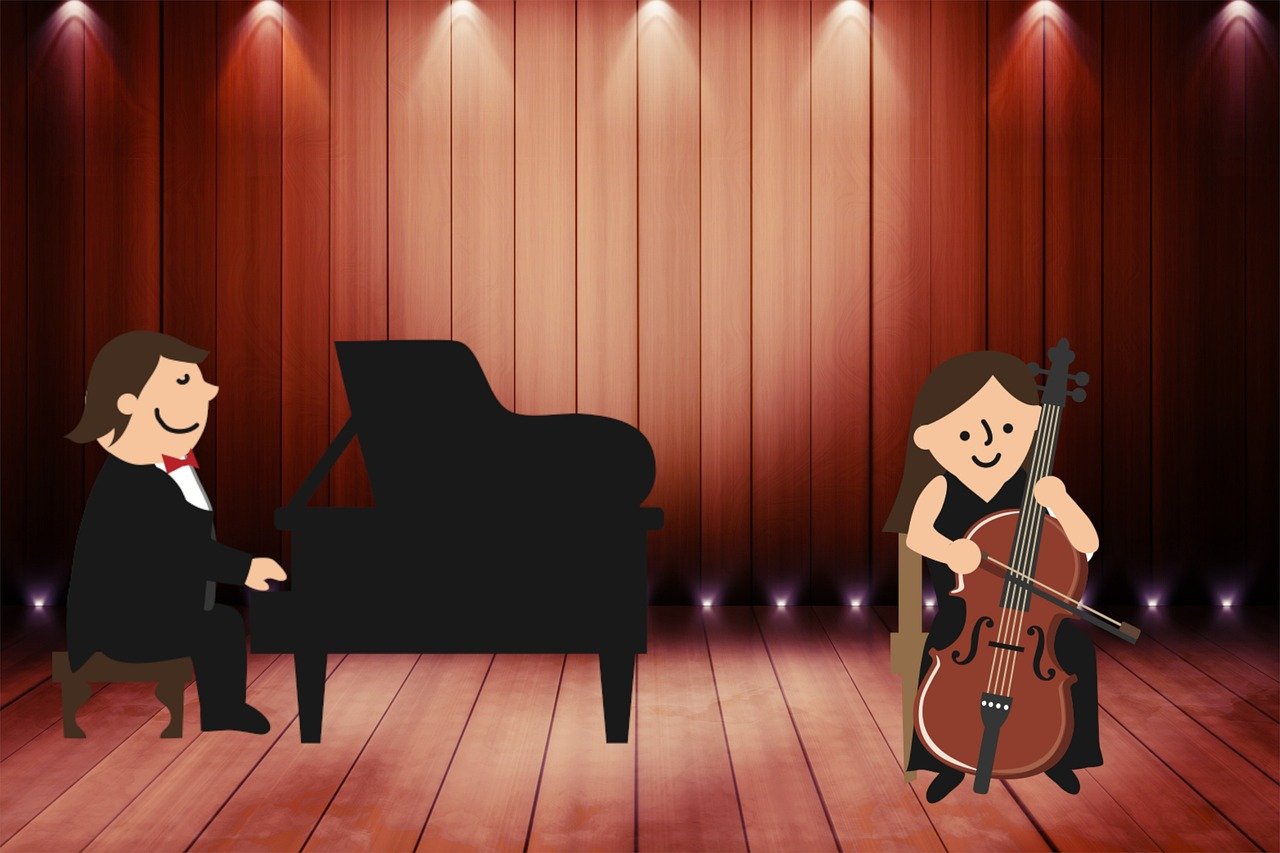Benefits of playing in recitals
Public performance is a major element of modern performing arts. Giving children the opportunity to perform in a friendly, informal environment comes with many benefits.
Music recitals can help kids fight stage fright, gain confidence, develop certain essential skills, and get improvements in different aspects of life. Even though not all children are always willing to participate in recitals, parents and teachers should encourage children to understand that playing in recitals is a fun way to demonstrate their talents.
Most children who participated in music recitals reported having the best experience of their lives. Playing in recitals helps students learn to deliver effective performances. However, students must not be forced to participate in recitals. Instead, you can encourage them by highlighting the benefits of public performance.
Here are the main benefits of playing in recitals for children:
Performing music: memorable experience and feeling accomplished
While we may not always recall as to what every lesson was like in school while growing up, most adults recall playing in recitals. They remember their costume, the music they played, the events surrounding the performance, the atmosphere, and the people who witnessed the performance.
Playing in recitals also makes children feel accomplished. They get a feeling of satisfaction because all the hard work they did before the performance pays off. Moreover, they feel happier when they see their family and friends cheering them on.
Playing in recitals also makes the parents feel accomplished. Parents feel rewarded for the hard work they did all through the year. Seeing your little one delivering an epic performance will make you proud. This feeling further strengthens the child-parent relationship.
Playing an instrument in public Gaining confidence and overcoming stage fright
Playing an instrument in public builds self confidence at a young age
One of the most beneficial parts of playing in recitals is gaining confidence and defeating stage fright. Practicing alone can be easy; however, performing in front of an audience is a difficult task. Music lessons provide students the chance to practice their talent in front of an audience and become more confident in the process.
Also, practicing in front of an audience can make your kid more comfortable and prepare him for future situations. For example, it can build their confidence for school presentations, public speaking, and speeches. A 2016 study found that whether the effects of anxiety are helpful or damaging depends on the child’s experience, performance, history, training, self-confidence, and skills in managing physiological stimulation before and during a performance. The good news is that continuous practice improves these factors, helping the young performer to cope with stage fright. Performing in recitals makes a child feel more empowered and confident, which can help him later in life.
Music Recitals = Working towards a goal
Playing in recitals also helps a child to set goals and work to achieve that goal. Knowing that he has to perform in a recital will create a sense of urgency and anxiety in the kid. There is a deadline and a goal to achieve. This means that music performance can underline the value of the deadline for the young performer. As such, the child will start to practice more often. In other words, this means that a deadline is a powerful motivator for children. The sense of urgency causes the students to absorb more information than ever before.
When preparing for a recital, children should be encouraged to set realistic and reasonable goals. When children set reasonable goals, it can help build confidence, replenish their interest in music, and keep them motivated. When a child sets his own goal, it changes his attitude. Coping with the anxiety and urgency in the face of a deadline improves the life skills of the kids, which can be of immense help to them later in life. Your child will learn to manage time and practice even more to achieve the goal he has set for the performance.
Performing alongside peers
Playing in recitals provides your little one the opportunity to witness the performance of his peers. Even though personalized instruction is a core element of music lessons, it can take one-on-one experience out of the experience. For example, a child may not be able to hear and see as to how other students perform. But when it comes to recitals, all the participants get an equal opportunity to celebrate each other’s music.
In most recitals, new students and experienced performers are placed in such a way that the new students get to watch and hear the more experienced students. Doing so helps the new performers see an excellent recital and get the motivation to play like the seasoned performer. It motivates the new students to dedicate more time and energy to practice. Also, the beginners get to see as to how far their seniors have progressed since their first lesson. This will inspire and will further motivate them to practice more.
Practicing for a recital will expose the students to different elements of music and instruments that they otherwise might miss. During our music classes, we encourage the students to try a range of instruments, musical compositions, and styles. This approach introduces a holistic improvement to their music skills and prepares them for playing in recitals.
How to prepare your child for playing in music recitals?
Preparing for recital day = working towards a goal
Even though some children avoid the limelight, others thrive onstage. And even if your kid is shy, practicing can help build his confidence and prepare him to deliver a memorable performance. You can prepare your kid and build his confidence and skills for playing in recitals by registering him for music lessons.
During music lessons, the instructors work with the students to manage anxiety and beat stage fright. We provide a safe and comfortable atmosphere for students to hone their music skills and practice continuously so that they can have a successful performance. Our goal is not just to prepare the students for recitals but also to prepare them to tackle more significant challenges in life.
If you want to kid to play in a recital, you should first discuss it with him and encourage him to give it a shot. And if he is eager for the performance, we can help prepare him for the day.
Other music subjects you might be interested in from our blog:
Importance of Introduction to Music at an Early Stage: Little Mozart
ADHD Natural Treatment - Music Therapy
WHY PRIVATE MUSIC LESSONS ARE MORE EFFECTIVE THAN GROUP MUSIC LESSONS


